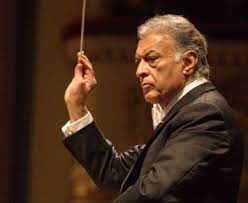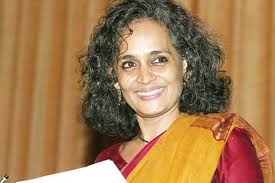Names: Name Structure
Many different naming practices are used in multicultural India. Customs vary according to regional traditions, family traditions, religion, and personal preference. Listed below are two of the most common forms in Northern and Southern India.
Name Format / Sequence
Given Name | Middle Name | Surname
In Northern India, a person’s full name typically consists of a given name, a middle name (optional), and a surname (family name, usually inherited from the father). In some regions, particularly the western states of Gujarat and Maharashtra, the middle name is usually a patronymic (the father’s given name).
Place Name | Patronymic (father’s Given Name) | Given Name
In much of Southern India, people traditionally do not have surnames (family names). A full name may consist of a patronymic (the father’s given name), the mother’s name, an ancestral place name, or the maternal uncle’s name, followed by a given name. In some regions, a place name (typically the ancestral home village) is added before the patronymic. These first two elements are often given as initials. Sometimes a given name is followed by the family’s caste name, and many people have only one name.
Examples from Northern India:
- Karamchand Uttamchand Gandhi, Indian politician and father of Mahatma Gandhi (male)
- Mohandas Karamchand Gandhi, leader of Indian independence movement (male)
- Suzanna Arundhati Roy, Indian author and political activist (female)
- Homi Jehangir Bhabha, Indian nuclear physicist (male)
- Zubin Mehta, Indian orchestra conductor (male)
- Rajinder Kaur Bhattal, first female chief minister of Punjab (female)
- Kiran Desai, Indian author (female)
Examples from Southern India:
- Kocheril Raman (K.R.) Narayanan, tenth President of India (male)
- Muthuvel Karunanidhi, five-time Chief Minister of Tamil Nadu (male)
- Muthuvel Karunanidhi (M.K.) Alagiri, Indian politician (male)
- M.K. Kanimozhi (Karunandihi), Indian politician, poet, and journalist (female)
- V. Jayalakshmi, Indian politician (female)
- Avul Pakir Jainulabdeen (A.P.J.) Abdul Kalam, 11th President of India (male)
- Sugathakumari, Indian poet and activist (female)
Given Name
People in India typically have one given name chosen by their parents. Most Indian names come from Sanskrit or Hindi words, and many are references to historical figures, Hindu gods and goddesses, or characters from epics. For instance, Ganesh, a popular male name, refers to the Hindu god of wisdom. The male name Vijay comes from the Hindi word for “victory,” and is also part of the female name Vijayalakshmi (goddess of victory). Given names tend to be gender-specific, but many names can be male or female, such as Madhur (sweet).
Examples:
- Anil (“air” in Hindi, male)
- Ganesh (from Sanskrit, the Hindu god Ganesha is known as the Remover of Obstacles, male)
- Jayant (“victorious” in Sanskrit, male)
- Vijay (“victory” in Hindi, male)
- Aishwarya (“prosperity, wealth” in Sanskrit, female)
- Deepali (“joy, happiness” in Hindi and Sanskrit, female)
- Rupa (Sanskrit for “beautiful,” female)
- Vijayalakshmi (“goddess of victory” in Sanskrit, female)
- Amarjit (“immortal” in Sanskrit, male or female)
- Balbir (Sanskrit for “strong,” male or female)
- Madhur (“gentle” in Hindi, male or female)
Middle Name
In Northern India, many people have middle names. Often this is dictated by family tradition (e.g., the name of the family deity). It has become more common in recent times for parents to choose a middle name for aesthetic, rather than traditional, reasons. In the states of Gujarat and Maharashtra, the father’s given name is typically used as a middle name.
Patronymic
In many areas of India, male and female names include a patronymic (the father’s given name). Depending on regional and family traditions, the father’s name may appear before the person’s given name (when it is often abbreviated) or after it, where it may serve as a surname (e.g., Anuradha Viswanathan, daughter of Viswanathan). It is becoming more common for people to acknowledge their maternal heritage by using a matronymic as well. For example, Athira, daughter of Chitra and her husband Vishnu, might be called C. Athira Vishnu.
Surname
The use of surnames (inherited family names) varies widely throughout India and has been changing with the country’s modernization. Name changes are common. The government has been encouraging people without a surname to take one. Those who do so often choose the name of a parent, grandparent, or ancestral place. People with a surname sometimes choose to drop or change it for various reasons, such as when it has unwanted caste connotations.
In most of Northern India, people have a surname (family name) that follows their given name and middle name. Typically the surname is inherited from the father. In Southern India, surnames (family names) are generally not used. Instead, the given name is preceded by one or more elements referring to the person’s family, such as the ancestral place name, father’s given name, or the maternal uncle’s name. These elements are often abbreviated. Many people have two initials, which may stand for various elements, depending on regional and family traditions. For instance, in the male name S.M. Krishna, the S. stands for Somanahalli, the ancestral village, and the M. stands for Mallaiah, the father’s given name.
Followers of the Sikh religion have a religious name after their given name: Singh for males and Kaur for females (e.g., Paramjit Kaur). For many Sikhs, this functions as a surname, but it is also common for Sikhs to retain their family’s caste name as a surname and use Singh or Kaur as a middle name. The surname Singh is also common among Hindus.
A family name in India may be derived from the name of an ancestral hometown, from a trade name or caste name, or as references to the ancient Sanskrit epics.
Examples:
- Rao (from the Sanskrit word raja, which means “king”)
- Kumar (Hindi for “prince”)
- Gupta (from the Sanskrit word for “protector”)
- Singh (Sikhs name from the Sanskrit word for “lion”)
- Patel (Hindu and Parsi name, from the Sanskrit for “landowner”)
- Jayashankar (from the Sanskrit words for “victorious” and “beneficent”)
- Vaswani (Hindu name meaning “descendent of Vasu)
- Murthy (Hindu name, from the Sanskrit for “manifestation”)
Married / Maiden Name
Many women in India with surnames take their husband’s surname when they marry. Women who have their father’s initial as part of their name may replace it with their husband’s initial. Women in Gujarat or Maharashtra often take the husband’s given name as their middle name. It is becoming increasingly common, however, for married Indian women to keep their maiden names.
Forms of Address / Honorifics / Titles
Indians tend to address close friends by given name alone, but otherwise honorifics and professional titles are used. The Hindi honorifics Shri (Mr.), Shrimati (Mrs., abbreviated Smt.), or Kumari (Miss, for an unmarried woman) are used when speaking in English, Hindi, or other Indian languages. These titles are followed by the person’s surname (e.g., Sanjay Gupta would be called Shri Gupta); if the person has no surname, the given name is used (e.g., S.M. Krishna would be called Shri Krishna). When speaking English, the honorifics Mr., Mrs., Miss, or Ms. can be used, followed by a person’s surname (or given name, if they have no surname). Professional titles include Doctor/Dr. (used for physicians and people with PhDs) and Professor (for college professors). These are usually preceded by Shri or Shrimati.
Examples:
- Priya Kulkarni (full name)
- Shrimati Priya Kulkarni (Mrs. Priya Kulkarni)
- Smt. Kulkarni (Mrs. Kulkarni)
- Mrs. Kulkarni
- Smt. Dr. Priya Kulkarni (Dr. Priya Kulkarni)
- C.N. Parthasarthi (full name)
- Shri C.N. Parthasarthi (Mr. C.N. Parthasarthi)
- Mr. C.N. Parthasarthi
- Mr. Parthasarthi
- Shri Prof. Parthasarthi (Professor Parthasarthi)
Article written for World Trade Press by Anne Healey.
Copyright © 1993—2024 World Trade Press. All rights reserved.

 India
India 
